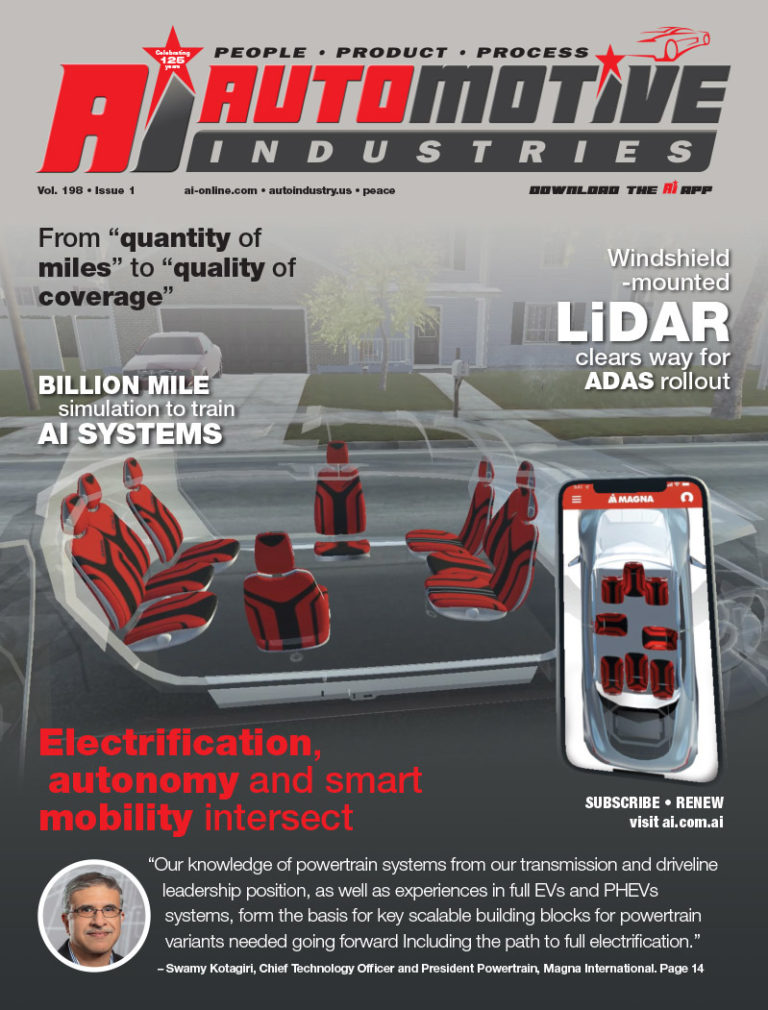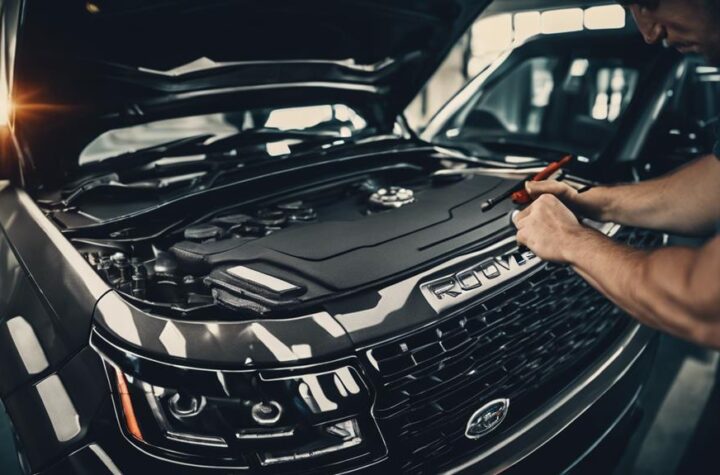As we move more people and goods than ever before, the demands on fuelling road transport continue to grow.
Globally, the number of cars is set to triple by 2050, going from around 700 million today to more than two billion. Trucking activities are expected to double. Eighty per cent of this growth is expected to occur in developing economies, particularly China and countries in the Middle East.
‘‘To meet the increasing demand for mobility, the internal combustion engine will continue to play a critical role in coming decades. By extension, demand for the liquid fuels that have fuelled mobility for more than 100 years, will continue to grow. At Shell, we expect consumption to rise by around 20% between 2010 and 2030,” says Arthur Reijnhart, Shell General Manager for Alternative Energies and Fuel Development Strategy.
Power train designers and fuel developers are working in parallel. “Automotive manufacturers are making significant progress, developing efficient drive trains that require less fuel per unit of distance travelled. This is being achieved by downsizing engines, light-weighting and reducing vehicle size. The technological evolution of Shell’s products can be less visible, but we are a leader in the development of a wide range of innovative road transport products.”
Shell started developing better fuel economy formulas as early as the 1920s, and has been innovating to introduce smarter fuels ever since. One of the company’s most innovative fuel economy fuels is Shell FuelSave that has been introduced in 16 markets. Shell FuelSave Regular Unleaded is designed to reduce energy loss by lubricating where engine oils are less effective, such as the upper piston ring, and also to help improve engine efficiency by keeping inlet valves clean, and preventing deposits from forming, explains Wolfgang Warneke, Chief Scientist, Smarter Mobility, Shell. The company supplies millions of liters of fuel around the world every day through approximately 43,000 Shell retail stations in more than 80 countries.
For Shell, innovative lubricants are critical to the effective operation and longevity of internal combustion engines, as well as fuel efficiency. The company’s products – which include Shell Helix, Pennzoil, Quaker State, Shell Rimula, Shell Rotella and Shell Tellus – are manufactured and marketed in around 100 countries. In 2011, for the fifth consecutive year, Shell was the number one global lubricants supplier – with more than a 13% share of the market in volume terms.
“We have leading lubricants research centers in the US, UK, Germany and a joint venture with Showa Shell in Japan, employing more than 200 scientists and engineers dedicated to lubricants R&D,” says Tim Ford, Vice President of Shell Lubricants for Europe and Africa. “In Europe, Shell Helix Fuel Economy Formula is at the cutting edge of smarter lubricant technology. Its Active Cleansing Technology (ACT) is formulated to clean as it protects the engine, which can improve fuel economy by as much as 2.2%.”
Fuels are also getting cleaner. Road transport alone, accounts for 17% of global energy use and energy-related CO2 emissions according to the International Energy Agency (IEA). As part of their wider efforts to tackle CO2 emissions, governments around the world are introducing emission legislation. In response, automotive manufacturers are developing new drive trains, powered by alternative technologies including electricity and hydrogen. ‘‘These technologies have great potential, but can take a long time to achieve significant market penetration in a complex energy sector,” says Stewart Kempsell, Shell General Manager, Future Fuels and CO2. “The reality is that there is no ‘silver bullet’, no single solution that will sweep aside 700 million cars and 100 years’ worth of infrastructure. Demand for traditional hydrocarbon fuel components, biofuels, hydrogen, electricity and natural gas – including gas to liquids, liquefied natural gas and compressed natural gas – will increase, and all vehicle technologies and fuels will exist alongside each other.”
In a 2010 Shell conference titled ‘Big Ideas for the Future of Energy: aspirations and realities’, Nick Allen, Vice President Downstream Management Consultancy and CO2 at Shell said: “We believe biofuels available today are the most realistic commercial solution to take carbon out of the transport fuels sector over the next twenty years.’’
In 2011, Shell and the Brazilian firm Cosan formed Raízen, a $12 billion joint venture for the production of ethanol, sugar and power, and the supply, distribution and retail of transportation fuels in Brazil. This marked Shell’s first move into the production of conventional biofuels and made the company one of the world’s largest biofuels producers. Raízen produces and sells over two billion liters a year of the lowest-carbon biofuel commercially available today – ethanol from Brazilian sugar cane.
“Some complex issues are associated with increased production of biofuels,’’ said Reijnhart. ‘‘Strict environmental and social safeguards are needed. To support significant increases in biofuels we will need to develop new technologies and advanced biofuels that are produced using new feedstocks and new conversion processes.” Shell was one of the first energy companies to invest in advanced biofuels, using feedstock such as crop wastes or inedible crops and new conversion processes that offer the potential for lower CO2 emissions and improved fuel characteristics.
“Our technology division has a dedicated bio team in four research centers in the UK, the US, The Netherlands and India. These are complimented by agreements with experts in academic institutions across the world. Shell also has technical partnerships with leading biotechnology companies exploring new technology platforms for the production of advanced biofuels,” said Reijnhart.
Shell also participates in the development of hydrogen as a transport fuel. “In the longer-term, hydrogen remains a compelling opportunity for personal mobility,” says Reijnhart. “However, hydrogen requires new vehicles and new dispensing systems. When driven, hydrogen fuel cell vehicles (FCVs) convert hydrogen into electricity and produce only heat and water. However, the overall CO2 footprint for these vehicles depends on how the hydrogen has been produced and its journey to the vehicle. Shell operates non-commercial stand-alone demonstration hydrogen filling stations for research and development purposes. These research and development stations allow us to evaluate a range of different technologies and learn valuable lessons about costs, consumer behavior and how to safely store and dispense hydrogen at different pressures,” he says. Over the short term, Shell’s resources will be focused on Germany where Shell sees the most promise with the government sponsored H2 Mobiltiy programme, a public-private collation set up to progress the commercialization of hydrogen.
Allen added: “We see electric vehicles as an important part of the energy mix long term, and definitely a solution for urban transportation. We see the future being a mosaic of transport energy solutions, including liquid fuels, hydrogen, electric and gas. In fact, there is increasing evidence that hydrogen and electric will complement each other rather than compete, as they are best suited to different classes of vehicle. Specifically on hydrogen, you see many of the car makers committed to its development with a number of trials underway across Europe and North America, trials which Shell are involved in”.
Shell believes that gas will also play an increasing role in the transport sector. The IEA estimates that there is enough gas in the world to enable us to carry on producing it at the same rate for another 250 years, ensuring long-tem secure supplies. Shell is investigating a number of opportunities to provide LNG as a fuel in the road transport sector. As well as possible air-quality benefits at the point of use, there can also be a cost advantage given the current price differential between gas and oil products in some markets.
Shell’s biggest investment in gas for transport is Pearl GTL, a joint development with Qatar Petroleum. Following production ramp up, Pearl GTL will produce approximately 50,000 barrels of GTL gasoil a day – or enough to fill over 160,000 cars. The majority will be used as a high quality blend component with conventional oil-based diesel and supplied through the existing diesel distribution system.
“GTL fuel contributes to the diversification of the diesel fuel supply as an alternative diesel,” says Reijnhart. ‘‘It can be blended with conventional diesel and/or biodiesel and used in the same vehicles and infrastructure. It is therefore a low investment cost compared with other alternatives on the market”. GTL gasoil burns more efficiently than conventional oil-based diesel, and so produces fewer local emissions and less visible black smoke when burned than conventional diesel. This is because it contains virtually no sulphur or aromatic compounds, and has a high cetane number (a measure of combustion quality). Shell trials in heavily-congested cities like London, Berlin and Shanghai have shown that buses, taxis and trucks running on high concentrations of GTL gasoil can contribute to improved local air quality by reducing local emissions.
“Much attention is focused on smarter products and technologies being developed by vehicle manufacturers and fuel providers. But Shell believes that to fulfill their potential, smarter products need to be complemented by smarter use. At Shell we are passionate about helping the world’s motorists get more out of their fuel. We want to use the expertise inside Shell to provide Regular fuels that are designed to help our customers save fuel and help drivers become expert fuel-savers,’’ says Warneke. “Since 2009, we have trained more than 200,000 people across the globe in fuel efficiency through face-to-face training, driving simulators, online tutorials and Shell FuelSave Driving Challenges”.
Shell launched its Target One Million campaign in 2012 to help one million drivers from across the world learn how to save fuel. The campaign will offer drivers the chance to take part in a series of online mini-games that have been designed to show them how using the right fuel, like Shell FuelSave Unleaded and Shell FuelSave Diesel, and making a few simple changes to their driving habits can help save them fuel, and in doing so, reduce their fuel costs. “Shell is constantly working to promote smarter energy use and has over 100 years’ experience of helping the world’s motorists get more out of their fuel. Target One Million is the latest step along this journey,” said Warneke














































 First aluminum auto sheet plant for China
First aluminum auto sheet plant for China Thailand has target of 2.3 million vehicles back in sights
Thailand has target of 2.3 million vehicles back in sights


